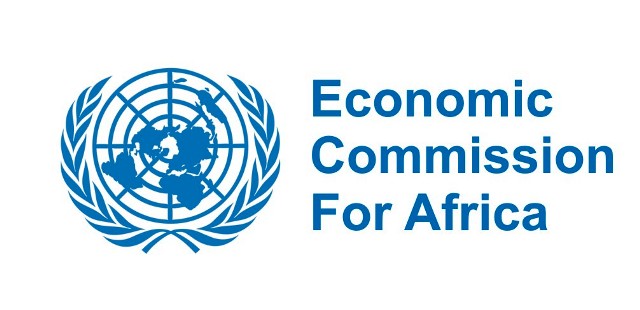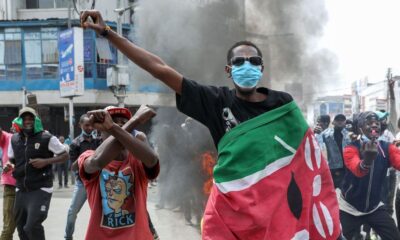Business
WBG President Decries Economic Crisis On Developing Countries
Ahead of this year’s Spring Meetings of the International Monetary Fund (IMF) and the World Bank Group (WBG), President of the WBG, David Malpass, say he is “deeply concerned” about the impacts of overlapping economic crises on developing countries.
Malpass stated this during a pre-event media briefing, saying he looked forward to discussing solutions with key stakeholders during the Spring Meetings, which began on Monday.
The World Bank chief listed the likelihood of interest hikes and rising prices of essentials such as energy, food and fertilizer as a major challenge facing the global community with hard impacts on the developing countries.
His concern came less than a week after a joint statement by the IMF, WBG, World Trade Organisation (WTO) and the United Nations World Food Programme (WFP) warned of an impending food crisis and called for coordinated assistance for developing vulnerable countries.
Malpass told the media that existing crises plus the war in Ukraine, China’s COVID-related shutdowns “are pushing global growth rates even lower and poverty rates higher.
“We’ve lowered our 2022 growth rate to 3.2 per cent from 4.1 per cent before. People are facing reversals in development for education, health and gender equality. They’re facing reduced commercial activity and trade. Also, the debt crises and currency depreciations have a burden that falls heavily on the poor.”
He observed that his recent visit to Senegal and Morocco exposed him to the challenge of energy and fertilizer price hike in the two countries like elsewhere in the developing world, stressing that “this is an intense problem.
“Food crises are bad for everyone, but they’re devastating for the poorest and most vulnerable. There are two reasons. First, the world’s poorest countries tend to be food-importing countries. Second, food accounts for at least half of total expenditures in household budgets in low-income countries, so it hits them hardest,” the WBG President said.
Stressing the content of last week’s press statement, he charged countries to take immediate actions to encourage the production of food, energy and fertilizer. He reiterated the importance of removing barriers to trade and production of food and other essential commodities.
“Global trade is still facing quotas, high import tariffs, high export tariffs, expensive food price subsidies and even export bans on food products. These should stop. The international community needs to immediately step up emergency assistance for food insecurity and help bolster social safety nets. From the World Bank’s standpoint, we are providing roughly $17 billion per year to strengthen food security – a big part of the global effort,” he disclosed.
Malpass spoke on other responses from WBG to tackle the impacts of war and COVID-19 and urged the developed countries to extend a helping hand to the poor who have been hit hardest by the multiple crises.
He pointed out debt and inflation as “two big problems facing global growth”, at the moment, saying they have thrown countries into severe financial stress. He added that “60 per cent of low-income countries are already in debt distress or at high risk of it”.
He called for the implementation of the Common Framework, including establishing a timeline for forming creditors’ committees, suspension of debt service payments/penalty interest, expanding eligibility and engaging commercial creditors at the beginning of the process. He envisages that the debt crisis would worsen in the year.
On inflation, he advised: “Policies need to be adjusted to enhance supply, not just increasing demand. Markets are forward-looking so it’s vital for governments and private sectors to state that supply will increase and that their policies will foster currency stability to bring down inflation and increase growth rates. This is especially important as global supply chains shift away from dependency.
“Central banks need to use more tools under current policies. The inequality gap has widened materially, with wealth and income concentrating in narrow segments of the global population. Interest rate hikes, if that’s the primary tool, will add to the inequality challenge that the world is facing.
Central banks can use more of their tools, not just interest rates. Capital is being misallocated now. One of the focal points should be using all the central bank tools so that capital is allocated in a way that helps increase supply. That will be an effective way to address inflation”, he said.
Business
Over $1.5bn Spent To Protect Nigeria’s Oil Installations -FG

The Federal Government has said it has spent over $1.5 billion from 2020 to date to protect the nation’s oil installations and curb crude oil theft.
The Secretary to the Government of the Federation (SGF), George Akume, made this known, yesterday, at a public hearing of the House of Representatives on crude oil theft.
Akume was represented by the Permanent Secretary, General Services, Maurice Nandi.
The Federal Government was concerned about the report from the Nigerian Extractive Industries Transparency Initiative (NEITI), which pointed to over $46 billion worth of stolen crude between 2009 and 2020.
“The House had set up a special committee, headed by the Chairman of the House Committee on Petroleum Upstream, Ado Doguwa, to investigate the losses in the oil and gas sector,” Akume said.
Additionally, Speaker of the House Tajudeen Abbas, represented by Deputy Speaker Benjamin Kalu, said $10 billion has been lost in seven months to crude oil theft.
Business
FG Unveils Metering Project Teams To Combat Oil Theft

The Nigerian Upstream Petroleum Regulatory Commission (NUPRC) has inaugurated Metering Audit and Advance Cargo Declaration project teams, to promote transparency and accountability in the upstream oil and gas.
The Commission’s Chief Executive, Mr Gbenga Komolafe, who spoke at the inauguration of the project teams, on Wednesday in Abuja, said the projects were designed to combat crude oil theft and boost revenue.
It will be recalled that the Federal Executive Council (FEC) had approved a 21 million dollars contract to audit metering and measurement equipment in the 187 oil flow stations in the country and also put in place an advance cargo declaration solution.
These initiatives as earlier announced by Minister of State for Petroleum Resources Sen. Heineken Lokpobiri, aims at enhancing monitoring and accountability in crude oil production and distribution, addressing rampant oil theft.
Komolafe, while inaugurating the project monitoring teams, announced a four-month deadline for the completion of the projects.
According to him, the initiatives zre in line with NUPRC’s mandate to ensure optimal government revenues from upstream petroleum operations, as specified in the Petroleum Industry Act (PIA) 2021.
He said the projects would be executed by PE Energy Limited and P-Lyne Energy.
“Audit of Upstream Measurement Equipment and Facilities project aims to establish reliable baseline data for all measurement points, identify gaps in production and allocation measurement, and implement targeted interventions to enhance metering infrastructure.
“This project is crucial in addressing issues such as the presence of obsolete equipment, lack of a comprehensive database and absence of real-time production measurement across many locations.
“Advance Cargo Declaration Solution complements the metering audit by establishing a robust system for declaring and tracking crude oil transportation and exports from Nigeria,” he said.
He said the project would monitor and account for the movement of crude oil within the country, prevent disruptions, theft, and under-declaration, and ensure that only certified products were being exported.
“It will also enable real-time tracking, reconciliation, and reporting of crude oil exports to facilitate accurate revenue billing and generation.
“For a long time as a nation we have suffered from the menace of crude oil theft and there have been contentions on the accuracy in terms of our hydrocarbon accounting in Nigeria in a manner that has impacted our federal revenue unfavourably.
“So what has happened is that the commission, within its assumption of office, has been able, as a regulator, to take a very bold measure to address this issue.
“We have 31 crude oil loading terminals. So we are trying to ensure that we put in place a framework where the nation will be able to accurately determine and measure the volume of crude that is loaded from these terminals,” he said.
He tasked the teams, comprising experts from various NUPRC’s departments, to discharge their duties professionally, adding that the projects would be delivered within four months, while any request for timeline extension would not be entertained.
The NURPC boss said that each project had a dedicated team, led by Mr Enorense Amadasu, Executive Commissioner for Development and Production, NURPC, with strict timelines for completion.
While commending President Bola Tinubu for his support, Komolafe urged stakeholders to cooperate with the teams to facilitate successful implementation of the projects.
“Team for Audit of Upstream Measurement Equipment and Facilities in the Nigerian Oil and Gas Industry” project comprise ; Manuel Ibituroko – Deputy Director, Facilities Engineering & Optimisation; Mohammed Sirajo – Manager, Facilities Engineering; Ike Chidi – Manager, Facilities Engineering; and Bashir Shariff – Principal Regulatory Officer.
“Team for Advance Cargo Declaration Solution” project, comprise: Bello Shehu – Assistant Director, Crude Oil & Gas terminal Operations; Abdulrahman Idris – Manager, Petroleum Accounting; Omeje Desmond – Deputy Manager, COTO PHC; Dimkpa I. H. – PRO, COTO Warri and Olatunji Babatunde – NDR”.
He said the teams would liaise with the contractors to ensure the fulfilment of the Commission’s specified obligations and monitoring the implementation of the projects to ensure alignment with the scope and specifications.
Responding, one of the two contractors, Chief Executive Officer, PE Energy Ltd, Daere Akobo, thanked the Federal Government for the confidence repose in them to take a pragmatic look at hydrocarbon accounting.
Also, the Director, P-Lyne Energy, Tomi Ogunwole assured that the company would abide by the four-month deadline set by the commission.
Business
FG Launches Blueprint For Africa’s Digital Trade
The Federal Government of Nigeria has launched a comprehensive strategy to spearhead Africa’s digital trade revolution, aligning with the African Continental Free Trade Agreement (AfCFTA) framework.
The initiative, a key component of President Bola Tinubu’s Renewed Hope Agenda, is aimed at leveraging trade as a driver of economic growth and continental unity in accordance with AfCFTA’s objectives.
According to Vice President Kashim Shettima, in his X handle (formerly twitter), “Nigeria is in a unique position to spearhead the continent’s technological transformation”.
He said the strategy includes implementing AfCFTA’s Digital Trade Protocol, developing technical talent hubs, enhancing digital infrastructure investments, and promoting innovation and entrepreneurship.
Shettima stated this while delivering a keynote address during a stakeholders’ summit with the theme, “Digital Trade in Africa: The Renewed Hope Strategy”, at the Presidential Villa, Abuja.
The Vice President emphasised the need for public-private sector synergy and assured continued government investment in digital infrastructure and human capital development.
On his part, the Minister of Communications, Innovation, and Digital Economy, Bosun Tijjani, highlighted the Tinubu administration’s substantial investments in all aspects of the digital trade protocol, aiming at harnessing opportunities both in Nigeria and across the continent.
He stated that innovative policies and programmes, such as the Three Million Technical Talent programme, the data protection policy, and increased investments in digital infrastructure, were equipping Nigeria’s young population for current and future opportunities.
Tijjani stressed the critical role of technology in facilitating trade across Africa, noting that the unprecedented opportunities within the single market area could be best leveraged through effective collaboration and networking enabled by digital technology.
-
Business3 days ago
Town Planners Lament Shortage Of Professionals
-
Niger Delta3 days ago
Edo Guber Poll: Ganduje Inaugurates Campaign Council …Vows To Reclaim State For APC
-

 Business1 day ago
Business1 day agoOver $1.5bn Spent To Protect Nigeria’s Oil Installations -FG
-
Niger Delta1 day ago
Gunmen Rob, Kill Businessman In Bayelsa
-
News3 days ago
We’ll Respond To Planned Protest Professionally, IGP Assures
-
Sports3 days ago
CEAPOLY To Include Sports In Curriculum – Rector
-

 News1 day ago
News1 day agoECA Advises African Countries On Rising Indebtedness
-

 Editorial1 day ago
Editorial1 day agoLearning From Kenya’s Protests

